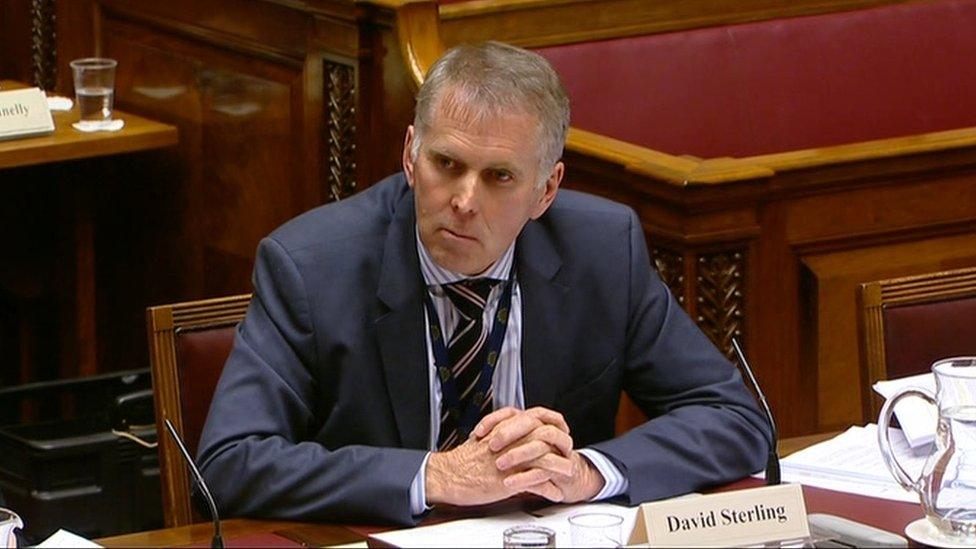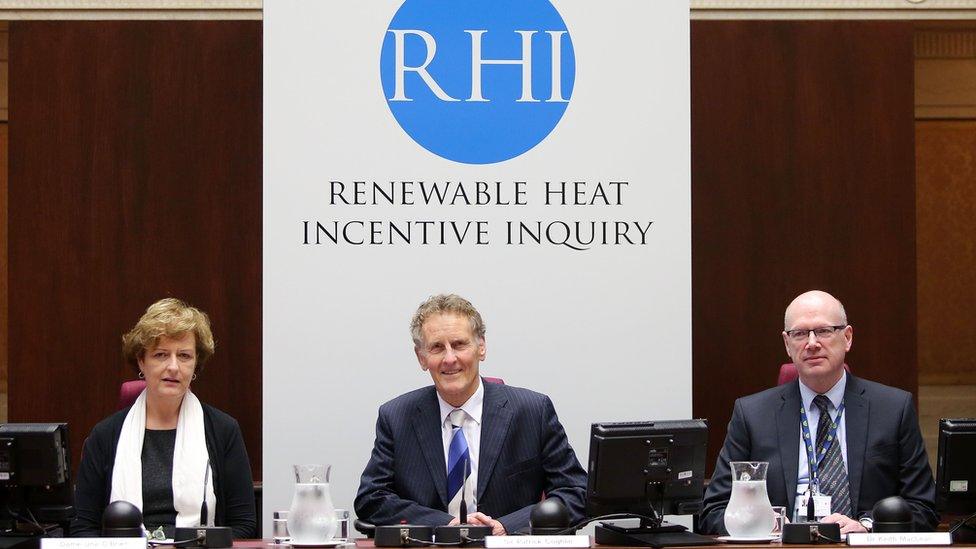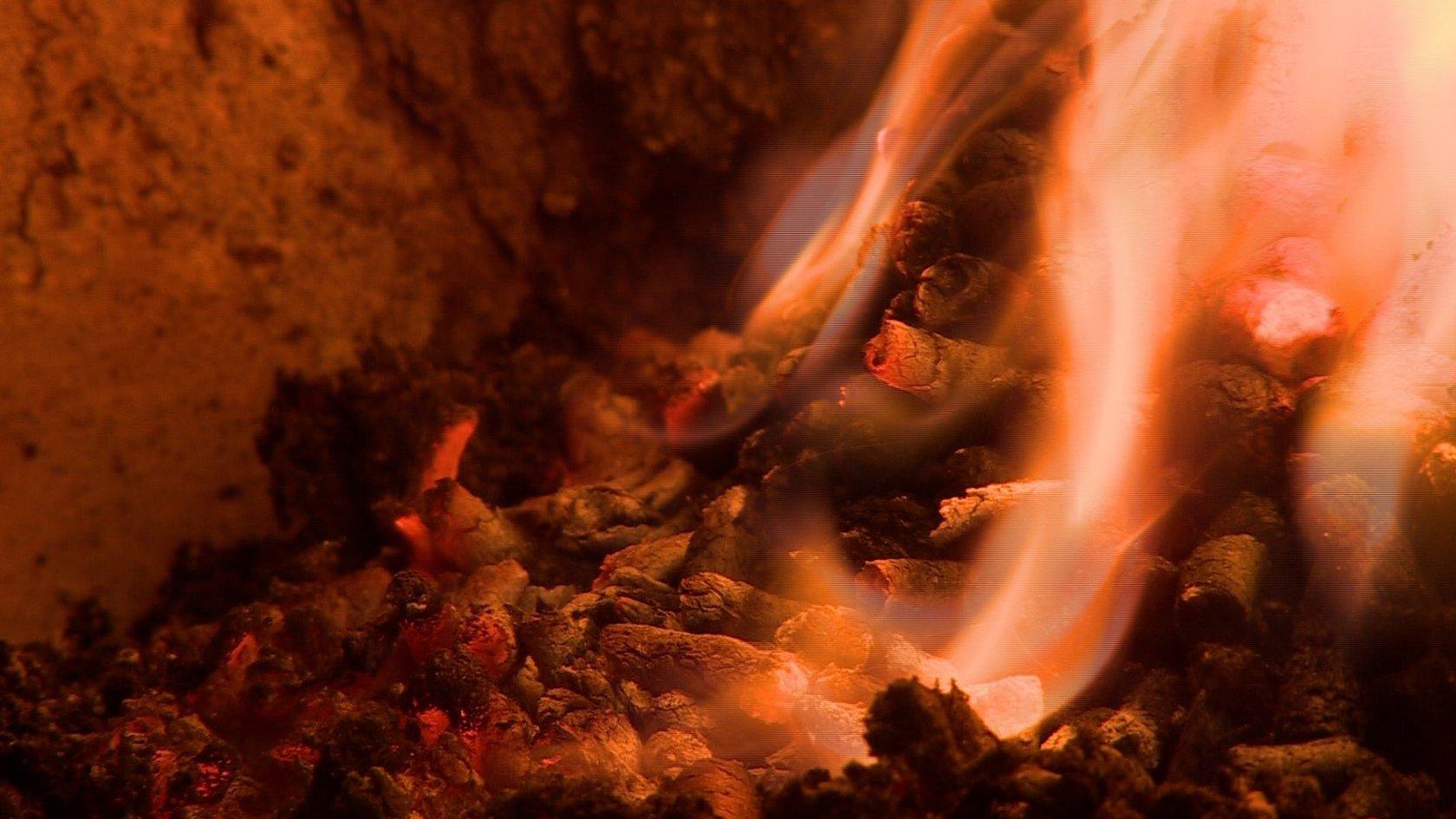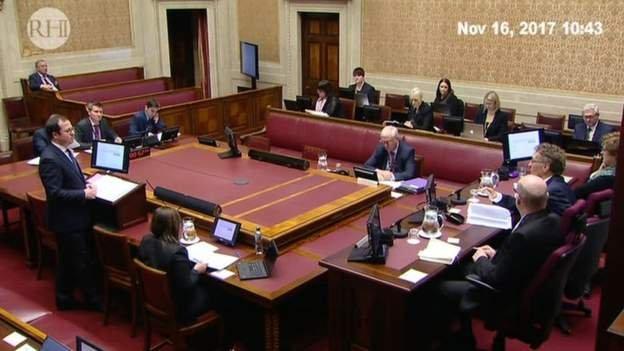Many in renewables sector knew RHI was 'too good to be true'
- Published

David Sterling was permanent secretary at the Department of Enterprise Trade and Investment when the RHI scheme was introduced
There was "widespread knowledge" in the renewables sector almost as soon as it started that the Renewable Heating Incentive (RHI) was "too good to be true", the inquiry into the flawed scheme has heard.
The inquiry's chair said the irony was it took the officials running it three years to realise this.
Sir Patrick Coghlin spoke on Friday.
The inquiry also heard NI Civil Service head, David Sterling, will be asked to justify his level of scrutiny of RHI.
In 2012, Mr Sterling was the civil servant in charge of the department introducing the incentive.
In witness statements to the inquiry, he said he did not manage the scheme day-to-day.
He said his responsibility was to ensure a "sound system of internal control" in the department.
This was to ensure that the department's minister received "reliable and objective advice".
'Hoovering up assurances'
In a statement, Neil Elliot of Future Renewables Energy Systems said most of the industry had realised the incentive was "flawed", not long after it began in November 2012.
He said they assumed it would be capped and amended to bring it into line with the Great Britain scheme.
"We did not communicate any of the flaws in the scheme to anyone, but it was widespread knowledge within the renewables industry that the incentive was too good to be true," he said.
The inquiry also heard about the decision-making process that led to the introduction of the regulations.
Junior Counsel to the inquiry Donal Lunny said it had involved a lengthy process of scrutiny by officials within the Department of Enterprise Trade and Investment (DETI) and the Department of Finance before they were sent for final approval.

The RHI Inquiry panel is made of up of Sir Patrick Coghlin (centre), Dame Una O'Brien and Dr Keith MacLean
But the inquiry heard there appeared to have been a reliance on assurances given by others, rather than any attempt to interrogate the assumptions that underpinned the plan.
Inquiry panel member Dame Una O'Brien said it appeared that people were simply "hoovering up assurances from others as a way of saving themselves from having to look at the detail" or read the consultants' reports.
She said the inquiry would want to find out if all the layers of scrutiny had actually added anything to the process.
The inquiry into the RHI scheme began earlier this month.
The inquiry has heard that issues about staffing levels in the team dealing with the complex new policy had been raised with Mr Sterling.
'Why is project so difficult?'
Only five people were dealing with RHI, and the equivalent of just one-and-a-half people were dealing with the non-domestic part of the scheme, which ran out of control.
Sir Patrick Coghlin said it appeared that when those concerns were raised with Mr Sterling, nothing had been done about them.
"It stopped there, [he] didn't say: 'Why did you need the resources? Why is this project so difficult? Come to me and tell me about it.'"
Mr Lunny said whether Mr Sterling's approach was "appropriate" was a matter that needed further exploration.
"Particularly, in a situation like this where the proposed scheme is relatively novel; has a large budget running potentially to hundreds of millions of pounds; which carries potentially severe consequences for DETI if it overruns its budget limits; has no built-in cost controls; is demand led and has been created by a division where there seems to be a recognition that there were resource issues," he said.
- Published17 November 2017

- Published16 November 2017

- Published7 November 2017

- Published7 November 2017
